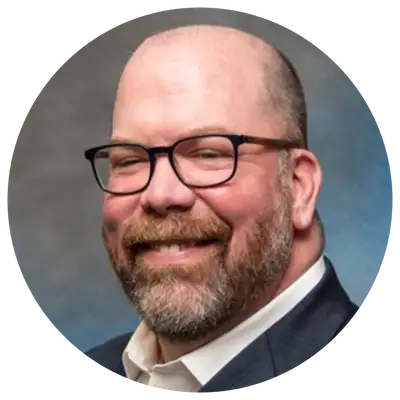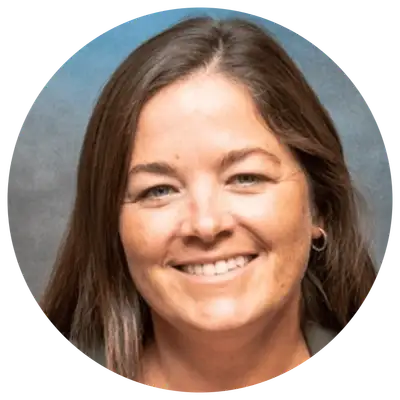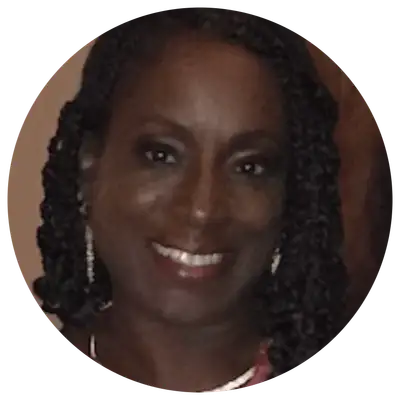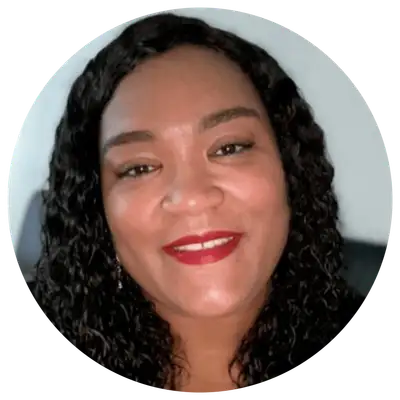
Racial Equity Discourse in the Classroom
Lisa Floyd Jefferson:
We definitely want the ease of the conversation to spread to regular community life, the football games, the board meetings, the grocery store parking lot, or the grocery store produce aisle. We want to make sure that civil discourse is the result of trying to address racial equity and social justice because we all have so much to learn from each other.
Speaker 2:
That was Lisa Floyd Jefferson, a deeper learning specialist with Reynoldsburg City Schools. Lisa is joined by Schyvonne Ross, school administrator at Reynoldsburg City Schools. And on this episode of The Conversation, we'll discuss their efforts around equity and racial justice in the classroom. Let's dive in.
John Hambrick:
Well, welcome to the conversation. This is John Hambrick, alongside my esteemed colleague, Christina Grady-Watts, with the Educational Service Center of Central Ohio, where we're bringing you quality conversations around education, workforce, and current events. And today's conversation, we've got a blend of really of all three intersecting across an incredibly important topic. And I'm so happy to bring two extremely talented professionals from Reynoldsburg City schools. We have Lisa Floyd Jefferson, a deeper learning specialist with Reynoldsburg City Schools, and a building administrator with Waggoner Road Junior High School, Schyvonne Ross. Thank you both, and welcome to The Conversation. Lisa, we're going to start you off. If you'd be so kind, can you tell us what the driving force is behind the classroom and community Socratic seminars?
Lisa Floyd Jefferson:
Well, we were given a great opportunity to work with Digital Promise to develop open education resources to address racial equity and social justice. We used the inclusive innovation process. That means we included our parents, our students, our teachers, and our administrators and our community representatives in the process. And what we did was work together to identify the issue that we really wanted to address. And the issue being addressed is teachers and students struggle to have meaningful discourse about racial equity and social justice. And we chose to define racial equity discourse in the classroom as intentional conversations about race and equity designed to increase understanding of racism, identity, dynamics of power and privilege, historical context, and social justice issues at interpersonal, institutional, and/or systemic levels.
To put it short, we know that parents are charged with having conversations about students becoming adolescents. But there's a lot of discourse out there now and argument about who should be having conversations about racial equity and social justice. And many people feel that teachers are the ones that should have be hosting the conversation. And many people feel that parents should be hosting the conversation. Well, what we find out is that whether it's teachers or parents, we're all ill-prepared, because most of us, as parents and teachers, were taught to not have the conversation, to be silent about it. So we got together and did some work, collected some data, and came up with classroom and community Socratic seminars as our solution to address getting people ready. It's like the performance task of us getting them ready.
Christina Grady-Watts:
That's really interesting, Lisa. And I'm curious what you learned from those Socratic seminars. Schyvonne, can you tell us a little bit about that?
Schyvonne Ross:
So our teachers put together lessons on racial equity and social justice, and many of these lessons were facilitated and led by our students. And so we learned quite a bit, quite a few things from implementing these Socratic seminars in the classroom. One of the things that we learned was that students have experiences, and many times they're not given the arena, the floor, the time, and the space to share their experiences. And so when these Socratic seminars are led by our students, our teachers are really in the background. They're a facilitator, and students are asking the questions to their peers. Students are then responding to these questions and these lessons. So we've conducted these lessons across the content areas, so science, math, ELA, social studies. And so we definitely connect these lessons to the standards and we connect these lessons to relevant happenings in everyday culture.
And so we've also learned that, again, students just want to have an opportunity to share and to speak. But going back to what Lisa said, we also learned that teachers need to feel prepared. And some teachers are gung-ho, they're all about it, but they may fear they don't have the knowledge, the background knowledge or the life experience. Or have done research in this area. Some teachers are hesitant for the same reasons. They don't have it. Or maybe they're just uncomfortable or unwilling. They may not feel supported by... It may have been their experience that they feel supported by their building administration or the district. So we wanted to eliminate those barriers. We wanted to break down those barriers and get teachers in a comfortable place. So what we did with Digital Promise and with an organization called Teach Diverse Lit, we came together to develop some modules. There are five modules on racial equity. It's really based in American history. And so with these modules, we want to provide professional development for teachers so they can get to a place of comfort in order to have these planned and unplanned conversations with their students.
Christina Grady-Watts:
Can we, real quick, go back to what you were saying about the Socratic seminars? What grade level were the students in?
Schyvonne Ross:
So our students that were having these conversations this past school year were eighth grade students. It did trickle down some to seventh grade, but primarily eighth grade.
Christina Grady-Watts:
And can you talk a little bit more about what the setup, what did that actually look like in the classroom?
Schyvonne Ross:
So a Socratic seminar in the classroom usually is a two to three day lesson or experience. So the first day, if there's any reading that needs to be done so that the students can develop their questions. So for example, if there is a poem or an article in ELA class that has to do with racial equity or social justice, they would do that on day one, as a class, go through, read it aloud, read it silently, annotate, develop some questions in that dialogue with the text. The next step would be, which usually occurs on day two, is students submit their questions to the student facilitators. So whatever questions they have about the document or how it relates to actual life and their life experience, they would submit their questions to the student facilitator. On day two or three, depending on how the teacher flushes that out, the actual Socratic seminar takes place.
And so literally, we're sitting in a circle in the classroom. So we move desks. We're in the classroom. We have our student facilitators. Usually that's two to three students. Questions are physically put in a basket. There's multiple ways to do this. You can do it digitally. We did it with physical paper. We put questions in a basket. And our student facilitators would pull out questions from the basket based on the text that their peers have read. And so they would go through these questions one by one and open the floor. And students would respond. And it happens in an organic way. Students aren't calling on their peers. They naturally just bounce off of one another. Now on day one also, so let me preface this. The teacher does set norms and guidelines and inform students how the Socratic seminar will take place.
So they have this understanding going into it. And so they develop this organic dialogue with the student facilitators and with each other around the questions that are being asked. The teacher, again, is off to the side, moderating if need be, but really it's led by students. This is the definition of individualized, personalized, student led learning. And so that's how the conversation goes. And then at the end of the Socratic seminar, when there's no more questions, there's a reflection document. Students are allowed to reflect on what they've heard. They can even ask additional questions in the document. And as the teacher sees fit, will share the reflections and maybe even have a further conversation about the seminar itself.
John Hambrick:
Fantastic. Schyvonne, I'm going to stick with you just for a little bit further. Can you share a little bit more about maybe a particular strategy that's being used that's helping to facilitate having these courageous conversations in the classroom?
Schyvonne Ross:
So another thing that Lisa and I worked on with Digital Promise and Teach Diverse Lit was our teacher guidebook. So in this guidebook, paired with the professional development modules, the guidebook shows our teachers. It's a graphic document. It's not just text, it's a graphic document. It shows teachers how to run a Socratic seminar in their classroom. So the Socratic seminar is the teaching method. It's the tool that teachers are using to have these conversations. And so this guidebook walks them through how to do a Socratic seminar. It references the modules and it gives tips, strategies, and tricks on how to effectively run the Socratic seminar in their classroom. We don't want to assume that teachers, we hear Socratic seminar, we've probably all heard it, but we don't want to assume that teachers know how to do that with fidelity. So we want to make it easy. We want to remove barriers. We want teachers to feel comfortable with both the knowledge and the tools on how to get this dialogue going in their classes.
Christina Grady-Watts:
I'm wondering, how did you involve families in these conversations?
Lisa Floyd Jefferson:
Well, we had, for one, we had one parent that was involved in our research and development from the beginning to the end. It started out that she was just listening in on the meetings the first year just to see what her student was involved in. And then Digital Promise invited her to be a part of the core team. But aside from that, we regularly had parent focus groups. We had teacher focus groups where we collected a lot of qualitative data. But we also sent out surveys for quantitative data. And then as a core design team, we would review the data and vote on what was most important or most prevalent as a result of that, what we collected from the stakeholders, parents, teachers, administrators, community members. We even had the mayor involved and board members.
Christina Grady-Watts:
Yeah, that's great. Tell me a little bit about that. What was their involvement like?
Lisa Floyd Jefferson:
So when sent out invitations to be a part of the focus groups, oftentimes they participated. We had the mayor met and talked about what he would like to see in terms of racial equity and social justice in Reynoldsburg at the beginning of our design and research. And he also participated in the community Socratic seminar that we ended with. So through focus groups, guest speaking, surveys, and actual participation in the seminars. We sent out invitations. There were some phone calls made and mostly emails.
Christina Grady-Watts:
And so out of all this work came these modules that will be available soon. Do you want to tell us a little bit about that and if the people listening are able to access those resources?
Lisa Floyd Jefferson:
Yes. So like Schyvonne alluded to earlier, we don't want to assume that anyone is ready. Because even at the beginning of this process, my age and stage, I felt like, oh, this is something that I do regularly and I'm ready. But what you will find, in terms of the modules in the guidebook, is that everyone that embarks upon this work is embarking upon a journey. And we all start at different parts. But it's critical that you commit to the work and you continue with the work. It's not like you read the guidebook, do a Socratic seminar, and voila, you are done and finished. And even in the modules, it ends with, what will you do to show your commitment to the journey? What do you have? What should you do now? How can you continue? It gives you a lot of resources that you can use to really strengthen your capacity to have these conversations.
While we are looking to increase the capacity of teachers to have these conversations in the classroom and within the community and students and community members to increase their capacity to have these conversations as well, we definitely want the ease of the conversation to spread to regular community life, the football games, the board meetings, the grocery store parking lot, or the grocery store produce aisle. We want to make sure that civil discourse is the result of trying to address racial equity and social justice because we all have so much to learn from each other. So we have the five modules. In the last couple of modules include some of the resources that you will find within the guidebook. The guidebook, as Schyvonne said, will specifically prepare you to facilitate the conversation within the classroom or the community. But the other thing that's very important that it does is it makes you look at what you're bringing to the conversation and to the table.
It helps you to look at your triggers. It helps you to buy into the agreements to have the civil conversation, and it helps you to understand how we, as Americans, got to where we are now. So there's a lot of historical context in there. Great resources, even from the Kirwan Institute included in there. A lot of things that help you get started doing the work. The modules, as we said, will be available as open education resources for everyone, and you'll be able to find that link within our description of the podcast. And we look forward to sharing what you learn and your questions as a result. You'll also find our emails there for you to communicate with us with any questions or aha moments.
Christina Grady-Watts:
That's fantastic, Lisa. And I love the phrase you used, the ease of the conversation. I love that phrase. Well, Schyvonne, Lisa, thank you so much for joining us today in this conversation. And like Lisa said, we'll make sure that we drop those links and their contact emails in the description of the podcast. And thank you all for joining us.
Lisa Floyd Jefferson:
Thank you for having us.
Schyvonne Ross:
Yes, thank you so much.
Creators and Guests



